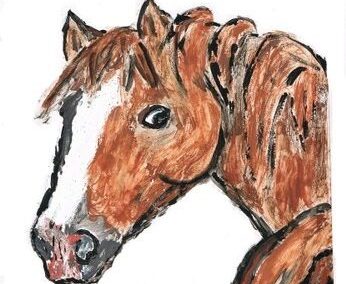As the odds of imminent policy reform in South Africa become less, the passage of time becomes more important in determining what happens next.
As the odds of imminent policy reform in South Africa become ever less, the passage of time in and of itself becomes ever more important in determining what happens next. It is an idea best articulated in the parable of the Sultan and the horse.
…One day, while Nasreddin was visiting the capital city, the Sultan took offense to a joke that was made at his expense. He had Nasreddin arrested and imprisoned; accusing him of heresy and sedition. Nasreddin apologized to the Sultan and begged for his life but the Sultan remained obstinate, and in his anger, sentenced Nasreddin to be beheaded the following day.
When Nasreddin was brought out the next morning, he addressed the Sultan, saying “Oh Sultan, live forever! You know me to be a skilled teacher, the greatest in your kingdom. If you will but delay my sentence for five years, I will teach your horse to sing.”
The Sultan did not believe that such a thing was possible; but his anger had cooled, and he was amused by the audacity of Nasreddin’s claim. “Very well,” replied the Sultan, “you will have five years. But if by the end of the fifth year you have not taught my horse to sing, then you will wish you had been beheaded today.”
That evening, Nasreddin’s friends were allowed to visit him in prison, and found him in good spirits. “How can you be so happy?” they asked. “Do you really believe that you can teach the Sultan’s horse to sing?” “Perhaps not” replied Nasreddin, “But five years is a long time. The Sultan could die. The horse could die. Who knows, we might even teach that horse to sing”…*
The story has a South African political tie in that Herman Giliomee recalls that John Vorster had told him of using a version of that story in an attempt to get Ian Smith to accept a political deal with Kenneth Kaunda and others in 1974 – an unfortunate example, perhaps, given that Smith later accepted a deal that would culminate in the horrors of present day Zimbabwe.
But that’s not the point. It is rather to say that current events and trends are so well and deeply established that they virtually assure that South Africa is going to suffer through a very tough five years. The election is most unlikely to change any of this. You cannot vote for Mr Ramaphosa before you consider that the jury is still out on whether he is a reformer or not. A strong showing for the ANC, which seems plausible, strengthens all its leaders including the obvious crooks and ideologues, and ignores the fact that pressure builds change in political movements – not the removal of the pressure. And even if the result is very good for the ANC and Mr Ramaphosa, the election does nothing to alter the make-up of the party’s executive committee.
That committee is deeply corrupted and utterly unable to consider let alone implement any ideological modernisation. The policies of the government are inimical to any kind of economic recovery. G7, Eurozone, USA, and Chinese economic growth rates may all have peaked and South Africa may try to rebuild itself through a global economic downswing.
The IMF revealed this week, for anyone who still had doubts, that our schools and teachers are truly abysmal – among the worst on earth. The Afrikaner-built media titan Naspers has returned to Europe whence many Afrikaners came – and no commentator has dared to mention the significance of this move from South Africa. Sentiment of serious observers, always well concealed, is with good reason very negative.
Prepare for the consequences and align your expectations accordingly or else the next five years may end up being one nasty surprise after another. And by the end of the five years you will be very distressed. Steel yourself!
Quite what happens after that, however, is not clear at all. Many of the people who are trying to lead our country may no longer be around. The ANC, our polls reveal to me, could quite easily be out of power in 2024. The terrible suffering of poor people, because they are the ones who will pay the greatest price for the incompetence and ideologies of South Africa’s present leaders, may become the source of new fonts of pragmatism and demands for reform.
In 1985 PW Botha told the world that his government would not lead white South Africa down the path of abdication and suicide. A decade later the Cold War was over, Mr Mandela was in the Union Buildings and the last leader of the National Party would later become the tourism minister in an ANC Cabinet. And for a time things went well. The economy recovered. The number of people with a job doubled. Living standards rose sharply as scores of our reports have revealed. The great efforts at reform put in by so many people, over such a long period of time and in the face of such extraordinary odds, had ensured that it all came right in the end. If it doesn’t come right in the immediate years ahead, perhaps it’s because it is not yet the end**.
*With apologies to WikiBooks
**With apologies to John Lennon although the source of the original quote is disputed
Frans Cronjé is the CEO of the Institute of Race Relations

